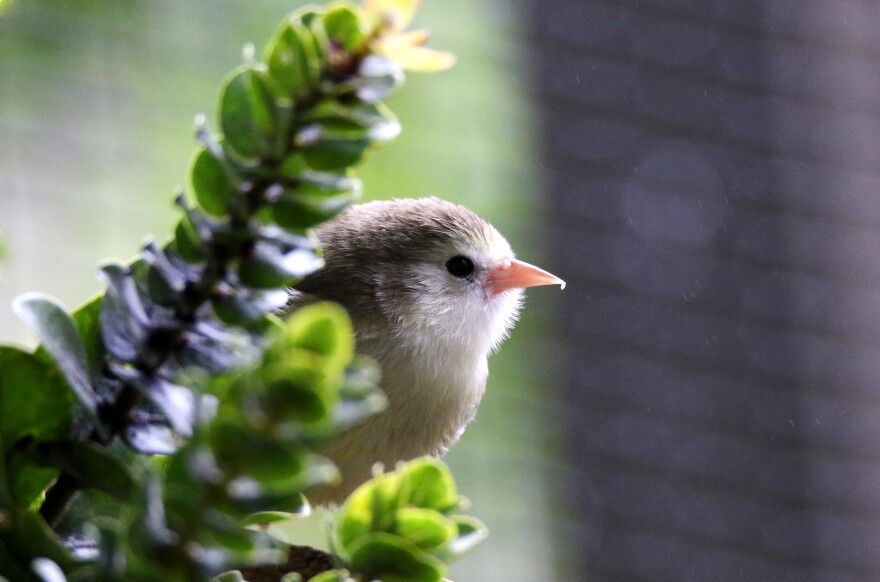Researchers on Kauaʻi carried out a rescue mission last week for a family of four ʻakikiki birds: breeding pair Carrot and Napua and their chicks, Abby and Erica.
This family of honeycreepers may be the last of their kind in the Halehaha area of the Alakaʻi Plateau on Kauaʻi. A second population of the species lives a few miles away, but officials say the total wild population in the high-elevation forest of Kauaʻi is possibly fewer than 50.
After nine days of searching, the research team recovered one — the six-month-old chick Erica. The bird is healthy and will be cared for in captivity at the Maui Bird Conservation Center.
Rosemary Rice, a research assistant with the Keauhou Bird Conservation Center and a member of the rescue team, says last week’s mission was only the first step in the long recovery strategy for the ‘akikiki.
"Avian malaria transmitted by mosquitoes has been the leading cause to the population decline," Rice said.
Researchers predict that if the spread of avian malaria continues, ʻakikiki could be extinct in the wild in the next two years.
"My long-term goal for this environment and this species is to get malaria under control, hopefully get it eradicated from the wilderness preserve where the ʻakikiki and other native Hawaiian honeycreepers live. Then to also get these birds breeding, get their population back up to get them back out to the environment that suits them best," Rice told Hawaiʻi Public Radio.
Similar to nuthatches, these little birds forage for insects and spiders along the trunks of trees. They favor ʻōhiʻa and will climb and hang upside down in order to get at a particularly juicy bug.





